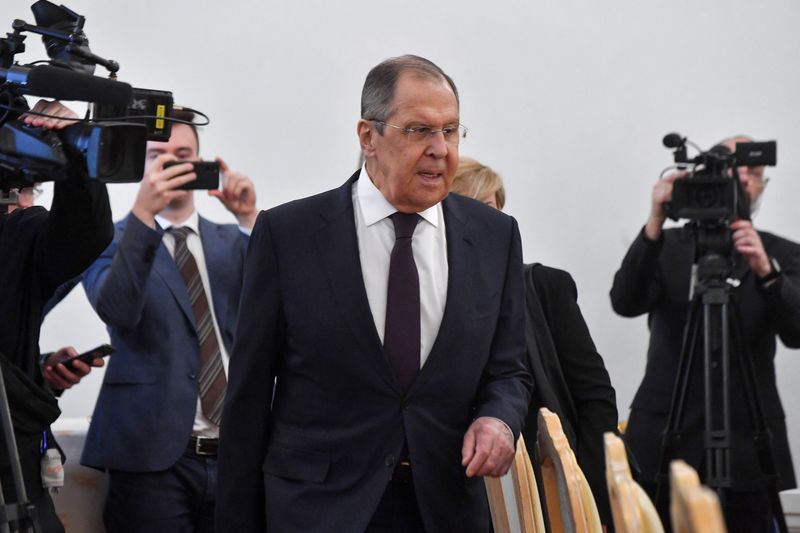Russian Foreign Minister Sergei Lavrov praised China’s peace plan for resolving the Ukraine conflict as the most reasonable proposal so far. The 12-point paper, presented over a year ago, focused on general principles for ending the war without getting into specifics. While the plan received a lukewarm reception from Russia and Ukraine initially, the United States criticized China for failing to condemn Russia’s invasion and for aligning with Moscow’s “false narrative.” Lavrov emphasized that China’s plan is based on an analysis of the root causes of the conflict and aims to eliminate them, presenting a logical structure from general to specific.
President Vladimir Putin hinted at the possibility of visiting China for his first overseas trip of his new term, indicating Russia’s willingness to engage in discussions about Ukraine based on what it terms as the “new realities” on the ground. With Russian forces controlling a significant portion of Ukrainian territory and claiming regions as their own, Moscow insists that any talks must acknowledge these developments. In contrast, Ukrainian President Volodymyr Zelenskiy has proposed a peace formula calling for an end to hostilities and a complete Russian withdrawal from occupied areas. Lavrov dismissed Zelenskiy’s plan as a flexible “menu” lacking specificity.
While Switzerland has offered to host a conference based on Zelenskiy’s peace initiative, Russia has expressed skepticism about the effectiveness of such talks without Moscow’s participation. By praising China’s peace plan, Moscow aims to signal its openness to dialogue while undermining Zelenskiy’s efforts. Lavrov’s comments suggest that Russia views China’s proposal as a constructive framework for discussions, despite previous criticism of its vagueness. As tensions continue to simmer in Ukraine, the involvement of key players like China and potential diplomatic initiatives could influence the prospects for a peaceful resolution to the conflict.
The ongoing conflict in Ukraine, which has seen Russian military intervention and territorial disputes, remains a significant challenge for regional stability. The involvement of global powers like China and the United States underscores the complexity of the situation and the diverging interests at play. While Russia insists on acknowledging the “new realities” on the ground, Ukraine seeks a complete Russian withdrawal from its territory. The upcoming meeting between Lavrov and his Chinese counterpart will likely focus on further discussions regarding potential peace efforts and the role of key stakeholders in resolving the crisis.
As diplomatic efforts continue to evolve, the differing perspectives on the conflict and proposed peace plans highlight the complexities involved in reaching a lasting settlement. China’s role as a mediator in the Ukraine conflict, along with Russia’s willingness to engage in discussions under certain conditions, could shape the trajectory of future peace negotiations. The upcoming talks between Russian and Chinese officials may provide insights into potential areas of agreement and disagreement, as well as the broader geopolitical dynamics influencing the conflict. Ultimately, the path to peace in Ukraine will require careful diplomacy, strategic decision-making, and a willingness to engage in dialogue with all relevant parties.


